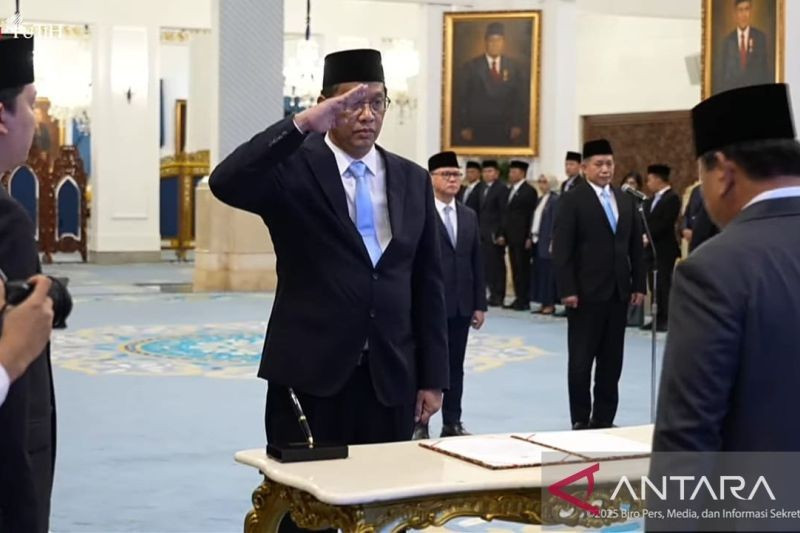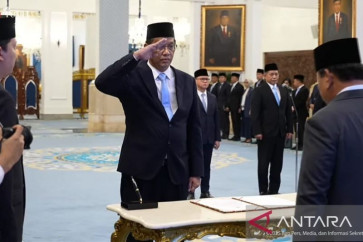Popular Reads
Top Results
Can't find what you're looking for?
View all search resultsPopular Reads
Top Results
Can't find what you're looking for?
View all search resultsAnalysis: Purbaya emerges as Prabowo's trusted hand in managing state finances
Change text size
Gift Premium Articles
to Anyone
P
resident Prabowo Subianto appears to have found in Finance Minister Purbaya Yudhi Sadewa a trusted figure capable of managing Indonesia's state finances with both discipline and political loyalty. In just a few months on the job, Purbaya has shown a willingness to take on elite power brokers, both within the government and from circles close to former president Joko "Jokowi" Widodo, without losing sight of President Prabowo's populist agenda.
The finance minister portfolio has become increasingly strategic under the new administration. Prabowo's ambitious campaign promises, ranging from a nationwide free meal program and food estates to the construction of three million public housing units and the Red and White cooperatives, require vast fiscal space. The government must also continue funding unfinished obligations from the previous administration, including the multibillion-dollar development of the new capital city, Nusantara.
Initially, many doubted whether Prabowo, a retired general with limited experience in macroeconomic management, could steer the nation's finances. His predecessor, Sri Mulyani Indrawati, long hailed as a reformist technocrat and a respected figure at the World Bank, had often clashed with political interests while safeguarding fiscal discipline. When Prabowo took office, she retained her position as finance minister, with two deputies, one being Prabowo's nephew, Thomas Djiwandono, seen as her eventual successor.
However, the situation shifted dramatically after a wave of street protests in late August culminated in the looting of Sri Mulyani's private residence. Days later, she resigned. Prabowo moved quickly to appoint Purbaya, a seasoned economist with a reputation for quiet pragmatism, to lead the ministry. Thomas Djiwandono stayed on as deputy.
Purbaya's early moves were bold. Soon after taking office, he announced a major cut in transfers to regional governments for the 2026 fiscal year, citing inefficiencies and misuse of funds. The initial draft budget slashed transfers from Rp 919.9 trillion (US$55.7 billion) in 2025 to Rp 650 trillion. Following parliamentary discussions and directives from President Prabowo, Purbaya adjusted the figure slightly upward to Rp 693 trillion, but still the lowest since 2016.
His justification was clear, that regional governments were sitting on vast idle funds. By August 2025, unused local government deposits in banks had ballooned to Rp 233.11 trillion, the highest level since 2021. Purbaya argued that the money should be spent to stimulate local economic activities, not sleeping in the banking system.
The finance minister's tough stance triggered protests from regional leaders, including West Java Governor Dedi Mulyadi, a fellow Gerindra politician, who disputed claims that Rp 4.17 trillion of his province's funds were idle. Such tensions underline Purbaya's determination to enforce fiscal discipline, even at the cost of alienating allies within Prabowo's political camp.



















